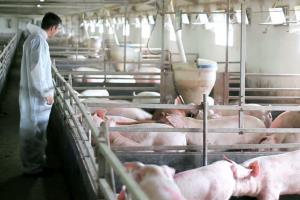
 A study to ascertain the effect on the intestinal biome following extended contact with hogs was conducted by the Agricultural University of Guangzhou*. Fourteen veterinary students were monitored over a three-month internship on commercial hog farms. The composition of the intestinal biome of the students was evaluated before, during and after the internship. Results were compared with long-term workers on farms and from the farm environment.
A study to ascertain the effect on the intestinal biome following extended contact with hogs was conducted by the Agricultural University of Guangzhou*. Fourteen veterinary students were monitored over a three-month internship on commercial hog farms. The composition of the intestinal biome of the students was evaluated before, during and after the internship. Results were compared with long-term workers on farms and from the farm environment.
Sequencing of bacteria in fecal samples obtained from the students demonstrated that the intestinal biome was changed during the three-month period and conformed to the pattern displayed by the farm workers. Bacteria with genes for antibiotic resistance were identified in the students’ biomes. Six months after the internship, the biomes of the students returned to their pre-internship composition.
This study can be regarded as a model demonstrating how drug resistant pathogens or their genes in monogastric livestock can be transmitted to humans.
*Chemical and Engineering News March 30th 2020